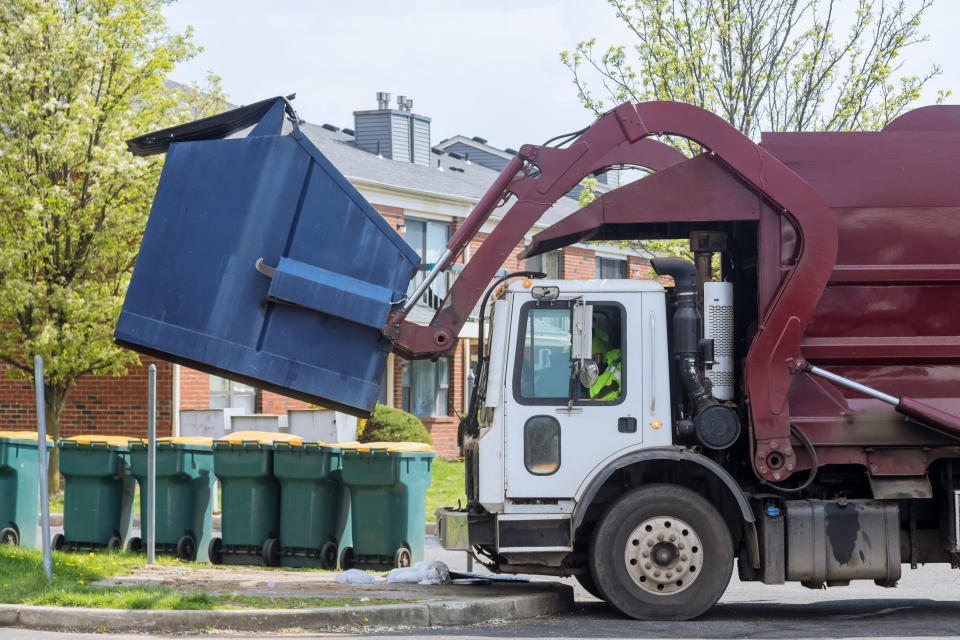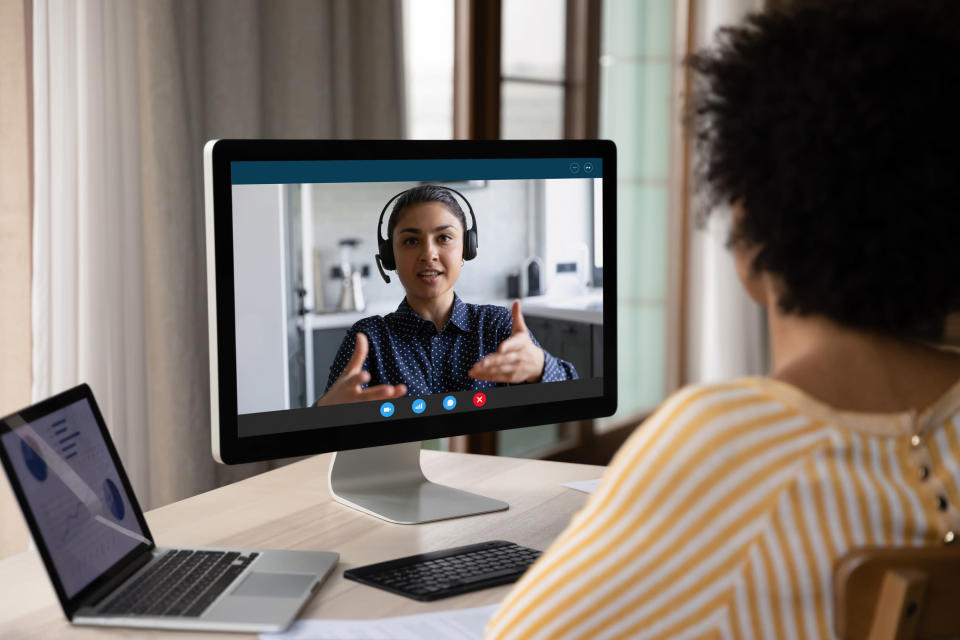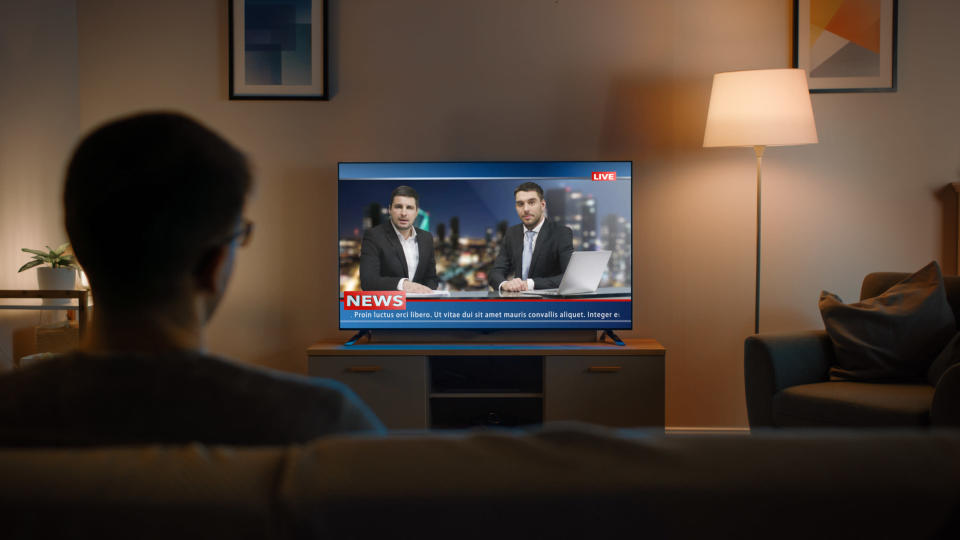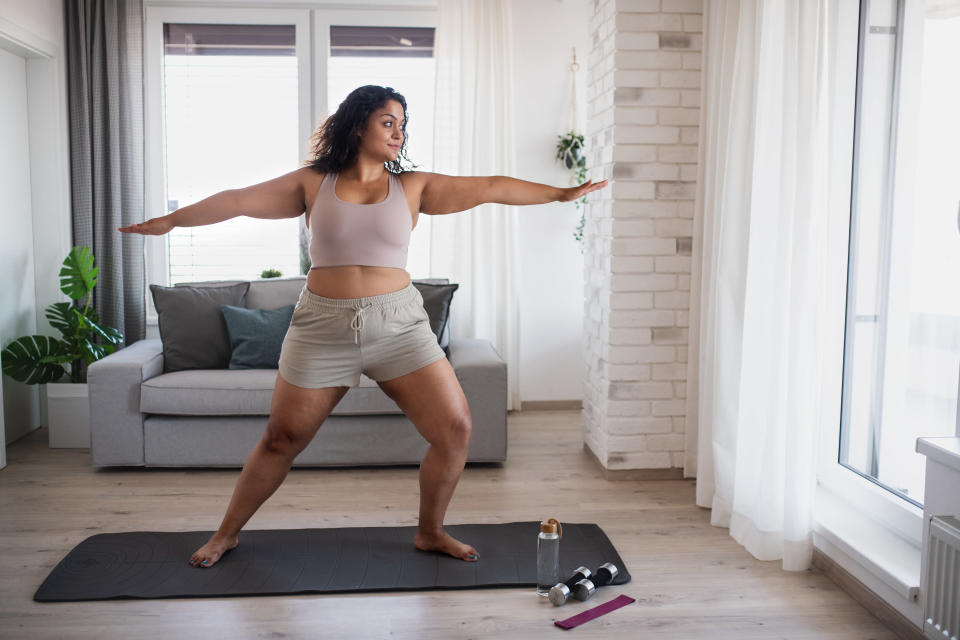Interviewing for a job can be nerve-racking — no matter how many times you’ve interviewed in the past. And virtual interviews come with a slightly different set of things to get nervous about.
TV Land / Via giphy.com
For example, maybe when you interview IRL, you get so anxious that you’ll get lost or stuck in traffic that you always give yourself an extra hour of travel time. Interviewing virtually completely eliminates that worry. But in its place, new fears can pop up, like: Is my background too messy? Will my internet work?? What if a loud truck starts backing up outside my window??? Does my listening-attentively face look weird???? And so on…
Disney Channel / Via giphy.com
To get some pro tips, I emailed with Sara Skirboll, VP of communications at CareerBuilder, and learned her do’s and don’ts for nailing a virtual interview. Here’s what we talked about:
1.Do pick a time when you won’t be rushed and can do a little prep before you get into the interview.

Timing is huge when it comes to virtual interviews. Skirboll recommends, “Schedule with a buffer in mind. Give yourself enough time to prepare beforehand so you aren’t entering the virtual interview room in an overwhelmed rush and time afterwards in case the call runs over.”
Morsa Images / Getty Images
This might also mean scheduling the interview for a time of day when you’re at your best.
2.Don’t schedule an interview during one of your busiest times.

Avoid scheduling an interview between important tasks or trying to take an interview on the go. You could come across as distracted, and rushing between tasks can add unnecessary stress to the interview process. Instead, Skirboll says, “Interviews should be done in a quiet and distraction-free space when you have the least amount on your plate. The last thing you want is background noise mid-sentence or frequent interruptions.”
CBC / Via giphy.com
This means it’s smart to consider avoiding busy times in your surroundings as well.

If you know that your neighbor likes to fire up the ol’ leaf blower every day around 11 a.m., it’s probably wise to avoid scheduling an interview during that time. The same thing goes for trash collection day, scheduled road work, or any other predictable noisy times. This ensures that your audio will come through nice and clear.
Photovs / Getty Images/iStockphoto
3.Do check (and re-check) that your equipment and connection are working before the interview.
CBC / Via giphy.com
“The last thing you want is to scramble and fix an unexpected issue five minutes before the interview,” Skirboll says. “Instead, find out what platform the interview will be on (ie. Zoom, Microsoft Teams, Google Hangouts) and log in to make sure you can easily get access. Test the microphone and camera twice — the day before and the day of — to check internet connection, visuals, and audio all in one go.”
It also can’t hurt to make a backup plan for what you’ll do in case something doesn’t work.

Perhaps your interviewer sent a dial-in number along with a Google Hangouts invite, so you know that if your internet connection gets choppy, you can call in. Or maybe you know that your laptop has been rather temperamental lately, so you ask your roommate if you can borrow theirs on standby for the interview. Knowing that you have a backup plan will help you weather any technical issues with professionalism and grace.
Fizkes / Getty Images/iStockphoto
4.And don’t forget to double-check that your screen name looks right too.
Hulu / Via giphy.com
You don’t want to realize two minutes into your interview that you changed your screen name to “Pumpkin Spice Four Loko” during a goofy Zoom with friends and forgot to change it back to your actual name. Skirboll suggests, “A few minutes before, check that your name appears as normal and have the interview link ready to click.”
If you’re using an account that has a profile picture, it can also be a great idea to make sure yours is a nice and professional headshot.
5.Do dress appropriately for your industry.

Dressing for the job you want is important, whether you interview in person or via the interwebs. “When it comes to dress code, remote interviews can feel odd but should be treated like any other interview,” says Skirboll. “Take time to dress the part and make note of the company culture. If on the more casual end of the spectrum, go for business casual, but if you’re seeking a role in a highly formal industry, business professional is the way to go.” Oh, and wear real pants in case you need to stand up and get something during the interview. You don’t want them seeing your PJ bottoms or your underwear.
Mstudioimages / Getty Images
Not sure how people at that company dress? Do some sleuthing online to get an idea.
6.Don’t wear prints, since they can look pretty weird on camera.

Maybe in person, your herringbone blazer is part of your most professional ensemble, but Skirboll says that patterns can look funky on Zoom. “Avoid elaborate patterns and designs, as they don’t always translate well on camera. When in doubt, stick to solids and simple patterns.”
Netflix
If you’re not sure what colors or kinds of pieces suit you, you might look at newscasters for ideas.

Newscasters can provide great fashion inspo for virtual interviewers because looking professional on camera is a huge part of what they do. Look at the kinds of colors and pieces they gravitate toward, and find ways to incorporate them into your own interview outfits.
Gorodenkoff / Getty Images/iStockphoto
7.Do find a place to sit where you’re facing a light source, so the interviewer can see your face clearly.
VH1 / Via giphy.com
Finding your light is another important part of getting ready for a virtual interview. Skirboll says, “Choose a background with natural light that falls directly facing you rather than behind. Even better if there is a spot in front of a large window, but you’ll want to at least be at a table or desk that lets you angle and elevate your computer and webcam in the right position.”
Natural light looks great on camera, but if the sun already went down, you can still set up great lighting at home.

If natural light isn’t an option, then consider getting a cheap clip-on ring light that can attach to your laptop. Or you might also experiment with moving lamps around in your room until you’re ready for your close-up.
Teraphim / Getty Images
8.Do choose a neat and neutral backdrop for your virtual interview.
And if you use a digital backdrop, keep it simple.
NBC / Via giphy.com
Digital backdrops can have a slightly distracting flicker effect when you move, but they’re still quite useful if your space isn’t exactly camera ready. If you opt to go this route, adding a blur filter to cover up your background is a great way to keep it minimal and profesh. Steer clear of distracting and busy backdrops to keep the focus on you.
9.Don’t let your nerves get the better of you.
Giving yourself a little bit of extra TLC before an interview can also help keep nerves under control.

As someone with anxiety, I find it helps a lot if I can squeeze in a workout or even just a quick walk or a couple of stretches before I go to an interview. I also like to eat a healthy snack first so I’m not too hungry or too full, and keep a glass of water handy in case my throat gets dry during the interview. Doing little things to take care of my body honestly does so much to calm my mind.
Halfpoint Images / Getty Images
10.Do have some small talk ideas prepared.
If you dread small talk, you can also look for an interesting piece of industry news to chat about.
NBC / Via giphy.com
You don’t have to get super personal when it comes to small talk. Let’s say they ask how your day’s been going so far. Instead of talking about what you ate for breakfast, bring up something new you’ve learned recently or chat about some news that relates to your job. This shows that you’re tuned in to your industry and curious about learning more.
11.Do make “eye contact” with the camera to show your interviewer that you’re engaged.

Creating a sense of connection virtually can be tricky, but it’s not impossible. “Let the employer lead the conversation and make eye contact by looking at your camera with the occasion nod when reacting so there is little cross talk,” Skirboll advises. Not sure how much eye contact to make? Studies have found that making eye contact about 50% of the time when you’re speaking and 70% of the time when you’re listening is a good balance.
Nsimages / Getty Images/iStockphoto
You might find it helpful to cover up yourself in the Zoom window or put a sticker next to your camera.
12.Don’t forget to ask some questions of your own.
HBO / Via giphy.com
We often forget that a job interview isn’t just about making a case for why a company should hire you. It’s also a chance for you to decide if this is even a place where you want to work. Skirboll says that doing some research on the company and asking questions based on what you find is a great place to start.
You can also ask specific questions about the role, the company culture, and anything else that matters a lot to you.

Skirboll suggested these questions as a jumping off point if you’re not sure what to ask:
• What does success look like in the first 90 days?
• What is the overall structure of the company?
• What challenges is the company currently facing?
Yana Iskayeva / Getty Images
13.And finally, don’t freak out if something goes wrong.
NBC / Via giphy.com
Stuff happens. Babies cry. Computers glitch. Cats leap wildly onto our keyboards and wreak havoc. If you’re interviewing virtually, odds are your interviewer has seen it all before, so don’t sweat it. “Technology is unpredictable, so it’s always possible, but if that’s the case — stay calm and switch over to a regular phone call or conference line if it’s easier,” Skirboll says.
The way you handle an interruption or technical issue during an interview could actually be really positive.
Comedy Central / Via giphy.com
If you’re able to laugh off an awkward moment and get right back to business, that shows a lot of poise and resilience — two very in-demand qualities. So, seriously, make a backup plan! You can’t control everything that happens to you during an interview, but you can control your reactions.
Have you interviewed for a job virtually? Tell us what went well (and not so well) in the comments!
And for more stories about work and money, check out the rest of our personal finance posts.









